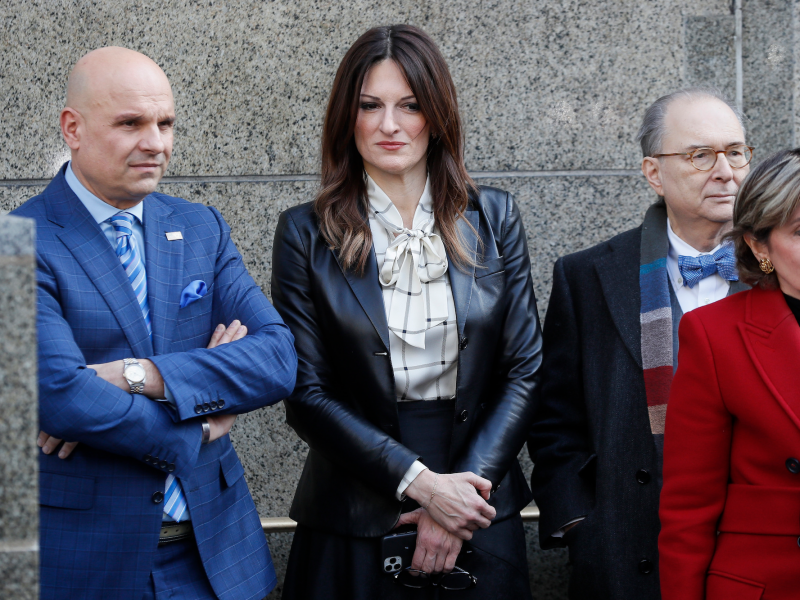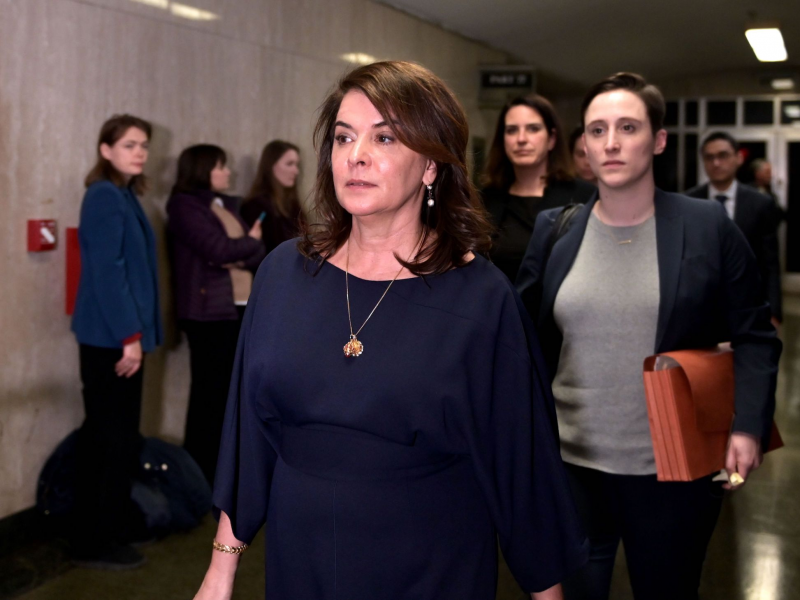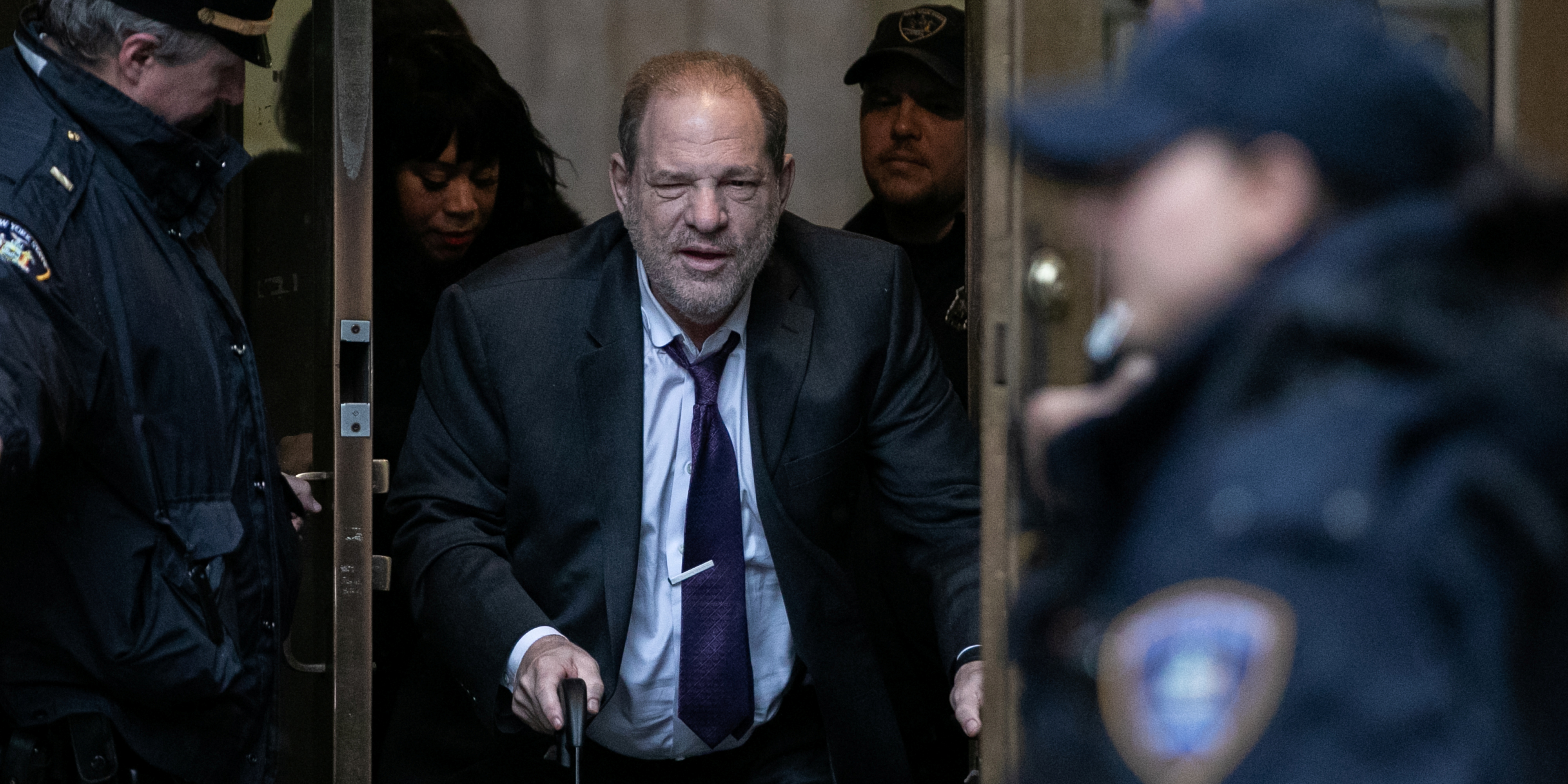- Convicted rapist Harvey Weinstein was found guilty on two criminal counts in a New York court on Monday.
- But he was acquitted on three others: a first-degree rape charge and two counts of predatory sexual assault charges.
- The predatory sexual assault charges hinged on the testimony of former “Sopranos” actress Annabella Sciorra.
- Sciorra’s own rape allegations were past the statute of limitations, but it’s not clear if jurors understood that.
- Legal experts say confusion over why prosecutors didn’t bring charges in Sciorra’s case may have contributed to the not-guilty verdict on one of the predatory sexual assault charges.
- “It’s hard to know because we aren’t hearing from the jurors,” former prosecutor Cheryl Bader said.
- Visit Insider’s homepage for more stories.
Jurors reached a verdict in Harvey Weinstein’s trial Monday, convicting him on two of his five charges: a third-degree count of the rape of hairstylist Jessica Mann in 2013, and a count of first-degree criminal sexual act against former actress Mimi Haleyi, who said Weinstein forced her to engage in oral sex in 2006.
Weinstein was not, however, convicted of three other crimes he was charged with – one count of first-degree rape and two counts of predatory sexual assault – which could have carried lifetime prison sentences.
In the late stages of deliberation, jurors in the case were torn on the charges, asking the judge on Friday whether they could reach a verdict on two of the chargers and remain deadlocked on others.
“We request to understand if we can be hung on counts one AND/OR three, and unanimous on the others,” the jury said, according to the Wall Street Journal. Predatory sexual assault were counts one and three against Weinstein, of which the jury acquitted Weinstein of on Monday.
New York State Supreme Court Justice James Burke directed the jurors to continue deliberations to try to reach an agreement on all counts. And on Monday, they delivered their mixed verdict.
Weinstein was convicted of a third-degree rape charge, but not the first-degree charge
Weinstein was convicted of third-degree rape for the accusations leveled by Jessica Mann. According to the New York State penal code, a person is guilty of third-degree rape when they have "sexual intercourse with another person without such person's consent where such lack of consent is by reason of some factor other than incapacity to consent."
But first-degree rape, according to the state of New York, is when a person engages in sexual intercourse "by forcible compulsion" or with someone "who is incapable of consent by reason of being physically helpless."

Weinstein was acquitted of a first-degree rape charge leveled by Mann, indicating that the jury did not believe there was the "forcible compulsion" element required of the first-degree charge.
Weinstein was, however, guilty of a first-degree criminal sexual act in the case of former "Project Runway" production assistant Mimi Haleyi, the jury ruled. Haleyi said in her January testimony that she tried to fight off Weinstein when he forced her to engage in oral sex in 2006.
"I did reject him, but he insisted. Every time I tried to get off the bed, he would push me back and hold me down," she said in court.
Weinstein's criminal sexual act in Haleyi's conviction includes forcible compulsion and carries the same maximum sentence of 25 years as a first-degree rape charge. For Mann's conviction of third-degree rape, he faces a maximum sentence of another four years.
To convict Weinstein of predatory sexual assault, jurors needed to believe he had a history of forcible sexual acts
To convict Weinstein of the predatory sexual assault charges, according to the New York state penal code, the jury would first had to convict him on at least one of the cases involving forcible compulsion, which included the first-degree rape charge in Mann's case or the criminal sexual act charge in Haleyi's, according to Cheryl Bader, a former prosecutor and current law professor at Fordham University.
Since jurors acquitted Weinstein on first-degree rape in Mann's case, he couldn't be convicted on the predatory sexual behavior in that case.

But in Haleyi's case, the jury found Weinstein guilty of committing a first-degree criminal sexual act, so they could also still convict him on a predatory sexual behavior charge, according to instructions on the jury sheet they received.
Prosecutors had used the testimony of "The Sopranos" actress Annabella Sciorra to bolster their cases for predatory sexual assault, which carries a lifetime prison sentence.
In her testimony, Sciorra alleged that Weinstein raped her sometime in either 1993 or 1994. While that case was past the statute of limitations for a rape charge, it was an integral piece of the puzzle for prosecutors in proving that Weinstein was a serial sexual predator.
"I didn't have very much fight left inside me at this point," Sciorra said during her January testimony, adding: "My body just shut down. It was just so disgusting that my body started to shake in a way that was very unusual. I didn't really even know what was happening. It was like a seizure."

Weinstein's defense team pointed out that Sciorra could not recall specific details of the alleged incident, potentially casting doubt the minds of the jurors and leading to the acquittal on those counts Monday.
"You have no idea the month or potentially the year that you say you went out to dinner," Donna Rotunno, Weinstein's defense attorney said during her cross-examination. "You think it is sometime in the fall and winter months of 1993 or 1994. That's a span of four, six, seven months."
Sciorra was also unable to recount the time she woke up the next day after the attack, which occurred more than two decades prior, or the names of her next-door neighbors at the time.
Deborah Tuerkheimer, a professor at Northwestern University's Pritzker School of Law, told Insider that Sciorra's testimony was pivotal in convicting Weinstein on either of the two sexual predatory sexual assault charges, as it was the only way prosecutors could prove there was a pattern of criminal sexual activity.
"It was everything," Tuerkheimer said. "They had to find beyond a reasonable doubt that he had assaulted Sciorra in order to convict on either one of those [predatory sexual assault charges].
Jurors wondered why Sciorra's accusations didn't beget their own charges
While Sciorra was named in the indictment to help prosecution convict Weinstein on the predatory sexual assault, her own case couldn't be brought to trial because the statute of limitations had run out. Jurors didn't know that.
In New York, the statute of limitations on all rape cases, including first-degree cases, previously expired after five years. Last year, New York Gov. Andrew Cuomo signed into a law eliminating the statute eliminations on new first-degree rape cases entirely.
During deliberations Tuesday, jurors asked Burke why prosecutors did not bring a separate charge in Sciorra's case.

The judge told jurors that was irrelevant in their deliberations, and they should not consider it, Bader told Insider.
"[The verdict] perhaps shows us that the jury was not listening to the media coverage, because that point was made in the media coverage, but it wasn't something that came out in the trial," Bader told Insider.
Bader said the judge made the right decision in this case, because informing them of the statute of limitations may have led the jury to speculate beyond the boundaries of the case. But it's hard to know for sure what jurors were thinking since they haven't explained the reasoning behind their verdict.
"The jurors were also asking a lot of questions in regard to her testimony," she said. "They may have interpreted the prosecution's lack of bringing that case forward to give them reasonable doubt in that instance. It's hard to know because we aren't hearing from the jurors."
Tuerkheimer said that the lack of conviction on either of the predatory sexual assault convictions means it's possible the jury - for some reason - did not believe that Sciorra's story involved a forced sexual act.
"The fact they convicted on the Mimi Haleyi criminal sex act one, but not on the predatory one suggests that you never know how jurors make up their minds about this sort of thing," Tuerkheimer said. "That's the difference between the two: one requires Sciorra, and one doesn't."
Read more:

